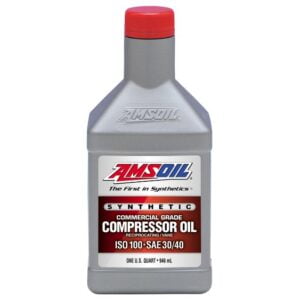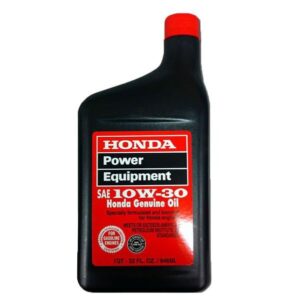Air compressors, like other mechanical devices, need lubrication to function efficiently and last longer. This lubrication typically comes in the form of oil, but not just any oil will suffice. There are different oil types for air compressors, choosing the right one for your compressor can significantly impact its performance and longevity.
Choosing the right oil is not merely a matter of preference but a crucial decision that can affect the operational efficiency, maintenance costs, and lifespan of your air compressor. This guide aims to shed light on the various oil types suitable for air compressors, helping you make an informed choice that ensures the optimal performance of your equipment.
Understanding Air Compressors
Air compressors are power-driven devices that convert electrical power or gas into potential energy stored in pressurized, or compressed, air. This compressed air can then be used to power various types of pneumatic tools, machinery, or equipment.
Different Types of Air Compressors that Use Oil
Air compressors come in several types, each with its own unique features, strengths, and applications:
1. Piston Compressors
Piston compressors, also known as reciprocating compressors, are among the most common types of air compressors. Designed much like a car engine, they feature a piston that moves within a cylinder to compress air. The compressor draws in air through an intake valve on the downstroke of the piston. As the piston reverses direction and moves upward, it compresses the air and pushes it out through the exhaust valve. Piston compressors are known for their simplicity and efficiency.
They are ideal for intermittent use and come in single-stage and two-stage variants. Single-stage piston compressors are suitable for low-pressure applications, while two-stage units, with their ability to compress air in two steps, are ideal for high-pressure tasks.
2. Rotary Screw Compressors
Unlike piston compressors, rotary screw compressors use two rotors instead of pistons to compress air. These rotors rotate in opposite directions, creating a vacuum that draws in air through an inlet valve. The air is then compressed as the rotors continue to turn and forced out through an outlet valve.
This continuous compression process makes rotary screw compressors ideal for continuous use in industrial settings. They are also known for their quiet operation and ability to deliver high volumes of compressed air.
3. Rotary Vane Compressors
Similar to rotary screw compressors, rotary vane compressors rely on a set of vanes to compress air. These vanes are mounted on a rotor, which rotates within an elliptical chamber. As the rotor turns, the vanes slide in and out of slots on the outer edge of the chamber, compressing air in the process.
Rotary vane compressors are known for their compact size and ability to deliver consistent compressed air. They are also relatively quiet compared to other types of air compressors.
4. Centrifugal Compressors
Centrifugal compressors are the most common type of air compressors used in large industrial applications. They rely on a high-speed rotating impeller to accelerate and compress air, which is then discharged through a diffuser to lower its velocity and increase its pressure.
Centrifugal compressors are known for their high efficiency and ability to deliver large volumes of compressed air at very high pressures. They are also used in refrigeration systems and gas turbines.
The Role of Oil in Air Compressors
Oil plays a crucial role in the operation of air compressors, particularly in rotary screw, rotary vane, and centrifugal compressors. Primarily, the oil acts as a lubricant, reducing friction between moving parts and thereby reducing wear and tear on the compressor’s internal components. This directly correlates to a longer lifespan for the compressor and less downtime for maintenance or repairs.
Oil also acts as a sealant in rotary type compressors. The oil creates a seal between the rotors (or vanes) and the compressor housing, which improves efficiency by preventing compressed air from leaking back into the intake.
Another thing, oil also plays a role in cooling the air compressor. The process of compressing air generates heat, which can potentially damage the compressor if not managed properly. The oil absorbs this heat and carries it away from the compression area, helping to cool the compressor and prevent overheating.
Lastly, the oil helps to dampen the noise and vibration produced by the compressor’s operation, contributing to their reputation for quiet operation.
Key Factors to Consider when Choosing Oil for Air Compressors

1. Viscosity
Different types of air compressors require oils with varying levels of viscosity. It is essential to follow the manufacturer’s recommendations and use the appropriate grade of oil for your compressor.
2. Additives
Some oils come with additives designed to improve specific performance aspects, such as reducing foaming or protecting against rust and corrosion. These additives can enhance the overall performance and longevity of your compressor.
3. Oil life
The average lifespan of oil in an air compressor is typically between 3,000 to 6,000 hours. However, some high-quality synthetic oils can last up to 8,000 hours. Regularly checking and changing the oil as needed can significantly extend the life of your compressor.
4. Environmental impact
When choosing oil for your air compressor, it is crucial to consider its impact on the environment. Look for oils that are biodegradable and do not contain harmful chemicals.
5. Compressor type
Different types of air compressors, such as reciprocating or rotary screw, may require different oils due to their unique operating mechanisms and lubrication needs. It is essential to check the manufacturer’s recommendations to ensure you are using the correct oil for your compressor.
6. Operating temperature
Some oils can handle higher temperatures than others, making them better suited for air compressors that run at higher pressures and temperatures. It is vital to choose an oil that can withstand the operating conditions of your specific compressor.
7. Oxidation and thermal stability
Oxidation occurs when oils are exposed to high temperatures, causing them to break down and form sludge. Choosing an oil with excellent oxidation and thermal stability can prevent this from happening and prolong the life of your compressor.
8. Compressor Type
As mentioned earlier, different types of air compressors require different types of oil. Make sure to check the manufacturer’s specifications for the type of oil recommended for your specific compressor model.
Types of Oils Used in Air Compressors
There are many different types of oils used in air compressors. Here are some of the most commonly used ones:
- Synthetic oil – This type of oil is designed for high-performance and heavy-duty applications. It has excellent thermal stability, oxidation resistance, and can handle extreme temperatures.
- Mineral oil – Also known as regular or conventional oil, this is the most common type of oil used in air compressors. It is suitable for general-purpose applications and has a lower cost compared to synthetic oils.
- Semi-synthetic oil – This type of oil is a blend of synthetic and mineral oil, offering the benefits of both types. It provides better protection against wear and corrosion while also being more affordable than pure synthetic oils.
- Food-grade oil – For air compressors used in food and beverage applications, it is essential to use a food-grade oil that complies with FDA regulations. These oils are non-toxic and safe for human consumption.
- Non-detergent or break-in oil – When breaking in a new compressor or rebuilding an old one, it is recommended to use non-detergent or break-in oil. These oils do not contain additives that could potentially clog the compressor’s internals during the break-in process.
Other Oils You Should Know About

Compressor oil
Some manufacturers offer specific compressor oils for their machines, which are specially formulated to meet their unique requirements and prolong the life of the compressor.
Reciprocating/ Rotary screw oil
For reciprocating and rotary screw air compressors, it is crucial to use oil specifically designed for these types of machines. These oils have anti-wear properties and provide excellent lubrication for the compressor’s moving parts.
Compressor oil additives
In addition to using different types of base oils, some manufacturers offer various additives that can be mixed with the oil to enhance specific features such as oxidation resistance, anti-wear properties, or viscosity index.
Benefits of Using the Correct Oil for Air Compressors
Selecting the right oil for your air compressor can lead to significant improvements in performance and efficiency. A well-lubricated compressor operates more smoothly, preventing overheating and reducing energy consumption.
Secondly, the right oil can extend the lifespan of the compressor and its components, reducing the frequency of repair and replacements. These factors not only contribute to better compressor performance but also result in substantial cost savings in the long run. Therefore, investing in high-quality oil specifically designed for your air compressor is a wise decision that pays off in multiple ways.
Potential Consequences of Using the Wrong Oil for Air Compressors
Choosing the wrong oil for your air compressor can lead to a host of problems. Premature wear and damage to the compressor is a common issue. The inappropriate oil may not provide sufficient lubrication, resulting in increased friction and wear on moving parts. This can lead to serious damage over time, negatively affecting the functionality and longevity of your machine.
Reduced efficiency and higher energy consumption can occur. When your compressor is not lubricated properly, it has to work harder to maintain its performance. This increased strain can reduce efficiency and lead to higher energy usage, resulting in inflated electricity costs.
Using the incorrect oil can also result in increased maintenance costs and downtime. Damage and inefficiency caused by improper lubrication often necessitate frequent maintenance and repairs. This not only costs money but also means your air compressor may not be available when you need it, creating downtime in your operations.
Conclusions
Choosing the right oil for your air compressor is crucial for optimal performance and longevity. Using high-quality oil specifically designed for your machine can result in cost savings, increased efficiency, and reduced downtime. On the other hand, using the wrong oil can lead to a range of negative consequences that can impact both your equipment and your bottom line.
Therefore, it’s important to do thorough research and consult with experts to ensure you select the right oil for your air compressor. Don’t let a simple mistake like using the wrong oil cause significant problems – take the time to make an informed decision and reap the benefits in the long run. So, always use appropriate oil types for your air compressors.

